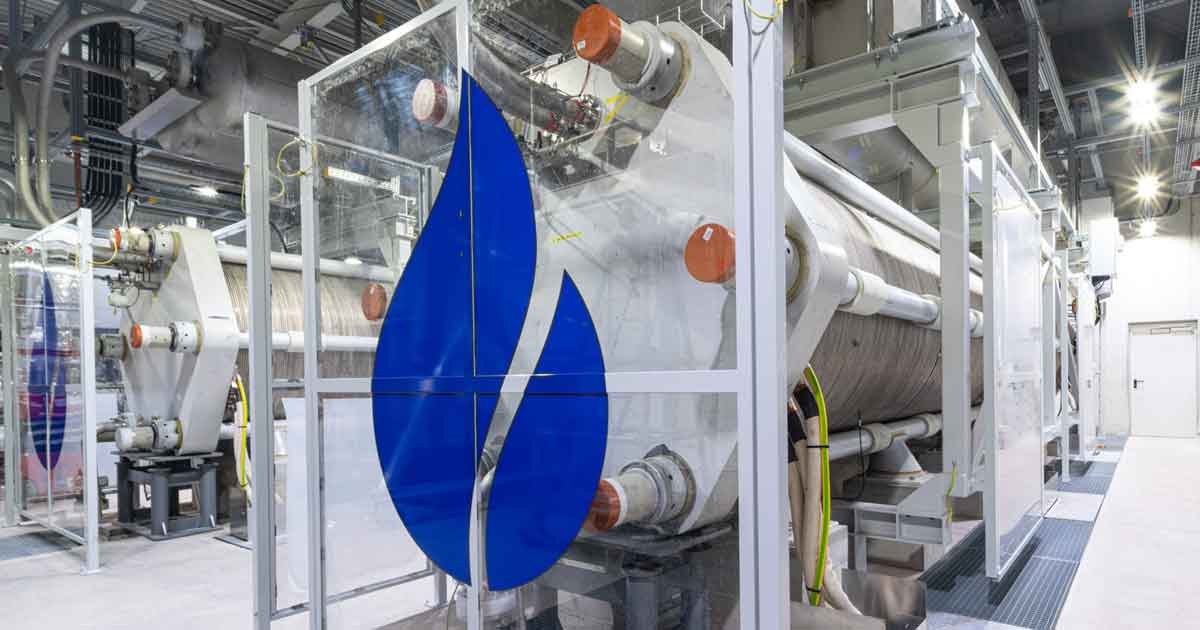The green hydrogen revolution has taken a significant step forward with the inauguration of RWE's pilot electrolyser plant in Lingen, Germany. The facility, located at the site of RWE's Emsland gas-fired power plant, was officially commissioned on [insert date] in a ceremony attended by high-ranking officials including Robert Habeck, Federal Minister for Economic Affairs and Climate Action, and Stephan Weil, Minister President of Lower Saxony.
This groundbreaking project boasts a 14-megawatt (MW) electrolyser capable of producing up to 270 kilograms of green hydrogen per hour using electricity from renewable sources. The pilot plant utilises two distinct electrolysis technologies, offering valuable insights for the development of future industrial-scale hydrogen facilities. Notably, a 100-MW electrolyser is already under construction just metres away, forming part of the GET H2 Nukleus project. This larger facility is slated for completion by 2025 and will be expanded to 300 MW by 2027.
Markus Krebber, CEO of RWE AG, highlighted the strategic importance of Lingen as a hub for Germany's energy transition. "Lingen is one of the most exciting locations for the German energy transition," he stated. "We are now producing green hydrogen alongside our flexible gas-fired power plant and state-of-the-art battery system." Krebber underlined RWE's commitment to expanding green hydrogen production at the site to supply industrial consumers with green molecules, supporting their decarbonisation efforts.
Echoing Krebber's sentiment, Robert Habeck emphasised the crucial role of hydrogen in achieving a climate-neutral and sustainable economy in Germany. "By supporting hydrogen along the entire value chain, we are taking an important step towards a climate-neutral and sustainable economy in Germany," he stated. "The federal government and state governments are collaborating closely to create the right conditions for climate-neutral economic growth."
Stephan Weil, Minister President of Lower Saxony, highlighted the pioneering work being done in Lingen, showcasing how industry can be successfully decarbonised. "The production of green hydrogen on an industrial scale, supported financially by us as the state government here at RWE, is a key prerequisite for successfully transforming our energy supply and our industry towards becoming climate neutral," he said. He further emphasised Lower Saxony's leading role in hydrogen technology, aiming to become a hub for production, import, storage, transport, and utilisation of hydrogen.
The pilot electrolyser was funded with eight million euros from the Lower Saxony Ministry for the Environment, Energy and Climate Protection. The 300-MW electrolyser, part of the GET H2 Nukleus project, received over 490 million euros in funding from the federal government and the state of Lower Saxony.
This pilot plant serves as a valuable testbed for RWE to gain insights into the development and operation of industrial-scale hydrogen systems. The facility comprises two sub-systems: a 10-MW alkaline electrolyser from Sunfire and a 4-MW PEM electrolyser (proton exchange membrane) plant designed and built by Linde, using technology from ITM Power.
The hydrogen produced in the pilot plant will initially be used in a comprehensive test programme at the site, blending it with fuel for the power plant's unit D gas turbine. From mid-2025 onwards, hydrogen-powered vehicles will be able to refuel at the Emsland gas-fired power plant, with construction of a hydrogen filling station and a trailer filling facility already underway.
RWE's commitment to the green hydrogen revolution extends beyond the pilot plant. They are a key player in the GET H2 initiative, aiming to build Germany's first publicly accessible hydrogen infrastructure. The GET H2 Nukleus project connects the green hydrogen production facilities in Lingen to industrial consumers in Lower Saxony and North Rhine-Westphalia. The 130-km grid, stretching from Lingen to Gelsenkirchen, will become the first hydrogen grid in the regulated sector with transparent pricing and non-discriminatory access. This initiative seeks to significantly accelerate the ramp-up of the hydrogen economy and assist companies in the industrial and mobility sectors in achieving their climate targets.
The commissioning of RWE's pilot electrolyser plant in Lingen marks a significant step towards a future powered by green hydrogen. This project signifies a commitment from government, industry, and research institutions to accelerate the transition to a climate-neutral energy system. With further investments and collaboration, green hydrogen has the potential to play a pivotal role in decarbonising various sectors of the economy, paving the way for a cleaner and more sustainable future.
Article
Business

Green Hydrogen Production Begins in Lingen, Germany: RWE's Pilot Electrolyser Plant Opens Doors to a New Era

